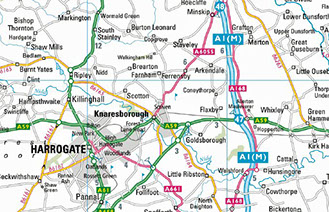Hypnosis Hypnotherapy Whitby Scarborough Filey Bridlington Pickering Malton Market Weighton Driffield York Guisborough Redcar Saltburn Middlesbrough Thirsk North Yorkshire UK

Treatments
How We Help
 Hypnosis is a very flexible therapy if the problem you have is anxiety-related, a phobia, stress or depression. It is also highly effective for building self-confidence, addressing nervous issues, stopping bad habits such as smoking and over-eating, boosting your self-esteem and many other conditions which have been stopping you from being happy and healthy. At Scarborough Hypnotherapy we are here to get you back on track to become 'the new you'.
Hypnosis is a very flexible therapy if the problem you have is anxiety-related, a phobia, stress or depression. It is also highly effective for building self-confidence, addressing nervous issues, stopping bad habits such as smoking and over-eating, boosting your self-esteem and many other conditions which have been stopping you from being happy and healthy. At Scarborough Hypnotherapy we are here to get you back on track to become 'the new you'.
“After trying almost everything to stop smoking (without success), I came to see Alan for a stop smoking hypnotherapy session. Not knowing what to expect, Alan put me at ease and it turned out to be a very pleasant and relaxing experience. It's now been 10 years since I touched a cigarette, I've never looked back or missed smoking - almost like Alan turned a switch off in my head. Best thing I've done for my health EVER! Can't thank Alan enough.” Ross S Anderson.
Quite often clients come to hypnotherapy as a last resort, previously having tried everything else! Sometimes this can be due to a perceived fear of hypnosis. Rest assured there is ABSOLUTELY nothing to fear.
In a hypnotherapy session there is reassuring no client loss of control, no zombie-like state and moreover you don't go to sleep.
Instead, you will experience a very natural state of mind, similar to a pleasant daydream. In thereby being self-absorbed you're mind will also become more focused.
After their first session most clients say they have never felt as relaxed as when in hypnosis.
Hypnosis therefore provides a focus of attention, where the conscious mind and physical body can rest. Although your mind might wander a bit, but that too is perfectly normal. Brain scans have shown our mind rhythms slow down in hypnosis. They change to alpha wavelengths, which are known to facilitate the acceptance of therapeutic suggestions.
Recent work by researchers in Finland have identified a hypnotic facial expression. This happens to us all at times, when our concentration lapses. Then our mind drifts for a moment into a self-absorbed 'daydream state'. This work confirms that hypnosis is a totally natural, yet amazing state of mind.
By utilizing this natural change, therapeutic hypnosis or hypnotherapy can address and resolve a wide range of emotional, stress-related and habitual issues by reaching the 'under the surface' subconscious mind. It can even be effective with some physical ailments where our subconscious thoughts creates symptoms. Hypnosis is also known to aid in the recall of consciously lost memories.
When relaxing into hypnosis your hearing will be normal, you retain your free-will at all times and if need be you can talk quite normally. And you won't give any secrets away either, unless you want to confide in the therapist. As your conscious mind relaxes so your subconscious or mind becomes more accessible.
This change assists the hypnotherapist to help the client with beneficial post-hypnotic suggestions ('reprogramming') and also, on occasions, by aiding the subconscious mind to review and resolve any outstanding issues.
The state of hypnosis, or trance as it can be called, can be achieved in a number of ways - such as by the soothing voice of the therapist. No swinging watches, no stage techniques where people fall over! You just rest in a comfortable chair.

In a hypnotherapy session usually about half the time is spent at a conscious level, so that an understanding of the client's problem and thought processes are understood. Then in the hypnotherapy part a medium trance state is usually all that is needed to achieve therapeutic change.
We enter an 'autopilot' hypnotic state when the thinking part of our brain (the frontal lobe) is relatively inactive. This could be when doing a repetitive task, driving on a familiar road, or attending a boring lecture! These are times when our mind tends to wander and we become self-absorbed and daydream. We might worry, dream about the future, or have creative ideas. All of which takes no conscious effort.
Which is why people can often have their best ideas when deeply relaxed. They are accessing their subconscious store. This is why hypnosis and hypnotherapy is so powerful.
Occasionally, a client may be unconvinced that they have entered hypnosis. They expect somehow to go to 'another planet' or lose consciousness, or 'go under' in some way. They might say they just went along with the hypnotist, could have opened their eyes at any time, remembered everything that was said (and anything they said) and could hear any sounds from outside the room. These are frequently the exact impressions one has when in hypnosis. And just as in a daydream we can lose track of time, so it is in hypnosis. Time seems to go quickly. The client might ask to be put into a deeper state, but actually it is principally they themselves who achieve hypnosis. All they need to do is stop trying. There is a saying that 'all hypnosis is self-hypnosis'.
Stage Hypnosis and Hypnotherapy
Therapeutic hypnosis has a very different objective to stage hypnosis. To entertain in a stage setting the hypnotist must purvey magic, manipulation and mind control. The stage hypnotist will have selected his participants from the audience, based on suggestibility tests and a willingness to participate.
Although those hypnotized will respond to confidently given requests, they will always only do what they feel comfortable in doing. They might appear to be asleep, or out of it, but they aren't, they will just be very relaxed in a dreamy state. And they will remember all aspects of their unique and enjoyable experience.
During hypnotherapy the positive affirmations given will be more effective than those conversed in a non-hypnotic state. It is the subconscious mind that will process and integrate these, as they reinforce the objectives of change.
Which is why hypnosis is a great facilitator of positive changes. It is tantamount to 'sowing seeds', the seeds of change.
The best approach to be taken is always dependent of the client's personality and needs.
Does the medical profession accept hypnotherapy?
 In recent years the medical profession has aligned itself to the pharmaceutical industry. But sustaining a 'drug-based' treatment regime is now being increasingly questioned. The long-term health effects of some medications are unknown. Some drugs are becoming less effective. Even short-term the 'side effects' of drug treatments can sometimes exceed the therapeutic benefits.
In recent years the medical profession has aligned itself to the pharmaceutical industry. But sustaining a 'drug-based' treatment regime is now being increasingly questioned. The long-term health effects of some medications are unknown. Some drugs are becoming less effective. Even short-term the 'side effects' of drug treatments can sometimes exceed the therapeutic benefits.
So gradually there is a move towards a more 'holistic approach' to healthcare, where individuals take more responsibility for their own health. The NHS has limited resources. It is still largely a 'reactive' service in attempting to meet growing demands. Moreover, the notion of 'doctor knows best' is more often being challenged. This trend in the shift of power is aided by growth in the internet, where medical information is more easily accessible.
Groups of medical doctors have reviewed the evidence for clinical hypnosis:
In fact, the term hypnotism was first introduced in 1843 by a Scottish physician, Dr James Braid. Braid rejected any supernatural explanations of a hypnotic trance and established the study of hypnotherapy on a firm empirical and scientific basis.
By 1892 the British Medical Association (BMA) commissioned a special committee of eleven doctors ‘to investigate the nature of the phenomenon of hypnotism, its value as a therapeutic agent, and the propriety of using it’.
Their report gave a clear recognition of the phenomenon of hypnotic trance, which stated:
‘The Committee, having completed such investigation of hypnotism as time permitted, have to report that they have satisfied themselves of the genuineness of the hypnotic state.’ (BMA, 1892).
They concluded: ‘The Committee are of opinion that as a therapeutic agent hypnotism is frequently effective in relieving pain, procuring sleep, and alleviating many functional neurotic ailments.’
In the 1950s the BMA issued another report stating that hypnosis was 'a valuable medical tool' and the American Medical Association described hypnosis as 'a viable scientific modality.'
By 1955 a report was published in the British Medical Journal (BMJ) under the title of ‘Medical use of Hypnotism’.
The terms of reference were:
‘To consider the uses of hypnotism, its relation to medical practice in the present day, the advisability of giving encouragement to research into its nature and application, and the lines upon which such research might be organized.’
The 1955 Subcommittee of experts concluded that hypnotic trance is genuine and ‘a proper subject for scientific research.’ They also provided a more extensive statement on the medical uses of hypnosis. This stated that it is definitely an effective technique in the psychotherapy of neurosis, psycho-somatic conditions and the alleviation of physical pain:
‘It may be the treatment of choice in some cases of so-called psycho-somatic disorders and psycho-neurosis. It may also be of value for revealing unrecognized motives and conflicts in such conditions. In the opinion of the expert subcommittee, hypnotherapy has proved its ability to remove symptoms and to alter morbid habits.'
In addition to the treatment of psychiatric disabilities, there is a place for hypnotism in the production of anaesthesia or analgesia for surgical and dental operations, and in suitable subjects it is an effective method of relieving pain in childbirth without altering the normal course of labour.' (BMA, 1955)
They also commented on 'the remarkable and striking nature of the phenomena induced in hypnotism’. They accepted that ‘profound and easily measurable changes of physiological function can be induced under hypnotism’. They emphasized ‘the relative simplicity and brevity of hypnotic techniques’ compared to other forms of psychological therapy.
Over its long history, hypnotherapy has been the subject of innumerable research studies which lend clear support to its various therapeutic applications.
A more recent clinical review of clinical hypnosis and ‘relaxation therapies’ published in 1999 in the British Medical Journal cited the following:
• ‘There is good evidence from randomized controlled trials that both hypnosis and relaxation techniques can reduce anxiety, particularly that related to stressful situations such as chemotherapy,'
• ‘Hypnotherapy is also effective for panic disorders and insomnia, particularly when integrated into a package of cognitive therapy.’
• ‘A systematic review has found that hypnosis enhances the effects of cognitive behavioural therapy for conditions such as phobias, obesity and anxiety,'
• ‘Randomized controlled trials support the use of various relaxation techniques for treating both acute and chronic pain,’
• ‘Randomized trials have shown hypnosis to be of value in asthma and in Irritable Bowel Syndrome,’
• There is strong evidence from randomized trials of the effectiveness of hypnosis and relaxation for cancer related anxiety, pain, nausea, and vomiting, particularly in children.’
Ref: BMJ 1999;319: 1346-1349 ‘Hypnosis and Relaxation Therapies,’ Vickers & Zollman]
Since the 1990's many more applications have been added to this list as new hypnotherapy techniques have developed.
Even so some doctors are still reserved about the therapeutic benefits of clinical hypnosis. In fairness, general practitioners are largely trained to diagnose physical conditions and treat the body. They may have a desire to address the mind too, but time is restricted in a typical ten minute appointment. Physical conditions are presented in the present, but our psychology is not so clear cut: it can traverses the past, present and even the future.
The conventional medical model tends to almost regard the mind as a separate entity. Whereas the power of our mind and it's influence on health and well-being is known to be considerable. The mind has amazing capabilities as a large body of research on the 'placebo effect' has demonstrated:
'what the mind can conceive, the mind (and body) can believe.'
A fascinating account of his experiences as a practitioner of hypnotherapy is given by former consultant surgeon Dr Jack Gibson. Dr Gibson carried out over 4,000 surgical operations using hypnosis as the sole anaesthesia. On his retirement as a doctor at the age of 70 he chose to become a full-time hypnotherapist for the next twenty years. Dr Gibson understood that treating psycho-somatic and many other conditions was about healing the mind.
Of course there are times when we might need a medical diagnosis, we might need powerful medications, and we might need surgery. And there are times too when we might need someone to listen and understand.
Clinical hypnosis is able to access and modify the subconscious programming which is the cause of many mind-body (psycho-somatic) conditions.
People of almost all ages are now more receptive to the benefits of hypnotherapy. It is gentle, natural, side-effect free and effective.
Of course too, no one should claim that hypnotherapy is a 'cure all' therapy. It would indeed be unrealistic and unethical to state that every condition or issue under the sun could be resolved. Similarly, doctors' are not able to cure you of everything either.
Subconsciously our thoughts tend to take the direction of least resistance - the 'well worn path.' Theses are our habits, good or bad.
'Rewiring' the brain's neuro-pathways creates a directional change. The mind becomes free to refocus (as in lateral thinking) and develop new pathways. Think of this as a road network.
Change is facilitated in hypnosis as this is when the subconscious mind is accessed. Metaphorically an 'overused A road' (our habit) is closed and a new road (could be a motorway) is built by post-hypnotic suggestions. This new road can lead to health, wealth and vitality – whatever we wish for as all achievements begin in the imagination.
In fact, in hypnosis we are more able to explore our intuitive and creative abilities.
Ask any creative person, such as a writer or composer, and they will say their ideas come from within. They use self-hypnosis and free association, perhaps inadvertently, to think laterally 'outside of the box.'
Can everyone be hypnotized?
Yes, everyone of normal intelligence can be hypnotized. You just need to relax into the experience, which is really easy.
Secondly, one mistake that some clients make is thinking too much or being too analytical. Hypnotherapy is about engaging the subconscious mind. This doesn't reason but reacts automatically (our “autopilot”) and follows established habitual patterns, much like a computer. However, unlike a logical computer program, our emotions do play a part in our subconscious thoughts (self-talk) and actions. We have feelings which motivate or demotivate us.
Imagine the mind as a road map. The lines of least resistance (our habits) represent the most travelled roads. But to change we need to explore the road network beyond these, to form new patterns and habits. Good habits.

Thirdly, some people try too hard to experience hypnosis and look for a “hypnotized feeling”. Best not to. That's like trying to go to sleep, when you worry about not sleeping. The hypnotic experience varies slightly from person to person. But often people can have a heavy feeling in their arms and legs and a tingling in their fingers. The best advice is simply to let it happen and enjoy. Remember, you will always be in control.
Being a natural thought process, hypnotherapy is 'side-effect free' unlike many medications. It can help to resolve a wide range of everyday issues, including:
• Anxiety
• Anxiety attacks
• Assertiveness
• Bad habits
• Bereavement
• Binge eating
• Binge drinking
• Blushing
• Bulimia
• Claustrophobia
• Compulsive eating
• Compulsive skin picking
• Confidence
• Dental phobia
• Depression
• Difficulty sleeping
• Driving test nerves
 The approach and techniques used are designed to suit the individual needs and personality of each client. For example those clients with a good imagination can be encouraged in hypnosis to visualize desired changes, as if it have already occurred. Both direct and metaphoric suggestions can also be used to 'rewire' the 'road map'.
The approach and techniques used are designed to suit the individual needs and personality of each client. For example those clients with a good imagination can be encouraged in hypnosis to visualize desired changes, as if it have already occurred. Both direct and metaphoric suggestions can also be used to 'rewire' the 'road map'.
Alan Gray has been trained both as a hypno-analyst and a clinical hypnotherapist. Hypno-analysis, or analytical hypnotherapy, tends to be the approach used for more complex issues which normally take 5 – 8 sessions to resolve.
Alan will carefully assess your requirements at the FREE Initial Consultation to map out the best way forward. He will use a range of innovative and effective treatments to facilitate positive and permanent change.
The hardest part about change is thinking about it, but then making the decision to act and do something. Alan will guide you through in an effective yet gentle way, using some of the most empowering techniques available.
The best investment you can make is in yourself. The benefits of change can last a lifetime: health, wealth and happiness. The choice is yours, just as the future is yours. Change doesn’t need to be hard, do get in touch with Alan today.
• Eating disorders
• Emetophobia
• Emotional problems
• Exam nerves
• Fears and phobias
• Fear of flying
• Habit stopping
• Hair pulling
• Irritable Bowel Syndrome
• Insomnia
• Interview nerves
• Low self-esteem
• Nail biting
• Needle phobia
• Obsessive Compulsive Disorder
• Pain control
• Panic attacks
• Performance anxiety-related
• Public speaking
• Relationship difficulties
• Self-consciousness
• Shyness
• Skin picking
• Sleep disorder
• Social anxiety
• Stress
• Stop smoking
• Stage fright
• Stammering
• Teeth grinding
• Tinnitus
• Weight gain
• Weight loss


Across Scarborough Whitby Filey Hunmanby Seamer Bridlington Pickering Malton York Middlesborough Stockton Redcar Saltburn Guisborough Market Weighton Driffield Thirsk Kirkbymoorside Helmsley Kingston upon Hull Teesside East Yorkshire North Yorkshire and the North of England
Making an Appointment
We provide a Free and informal Initial Appointment (30 minutes) if requested to discuss your personal needs and establish if we can help. Please feel free to bring a friend along for company if you wish.
Please note:
If you telephone and we are with a client, you may be directed to leave a message. Please give your name and telephone number and a suitable time to call you back. Due to the confidential nature of our work, Alan personally takes all appointment bookings.
Hypnosis Whitby Hypnotist Filey Hypnotherapy Bridlington Hypnosis Pickering Hypnotist Malton Hypnotherapist Driffield Hypnosis North Yorkshire
Personal Development for Health & Success
Natural Relaxing Liberating
Scarborough Hypnotherapy –
the specialist in helping you
Become the Person You Want To Be.
Scarborough Hypnotherapy has no control of and accepts no responsiblity for the content and products of websites external to the Scarborough Hypnotherapy website.
© Copyright Alan Gray Scarborough Hypnotherapy Practice 2006-17. All rights reserved.